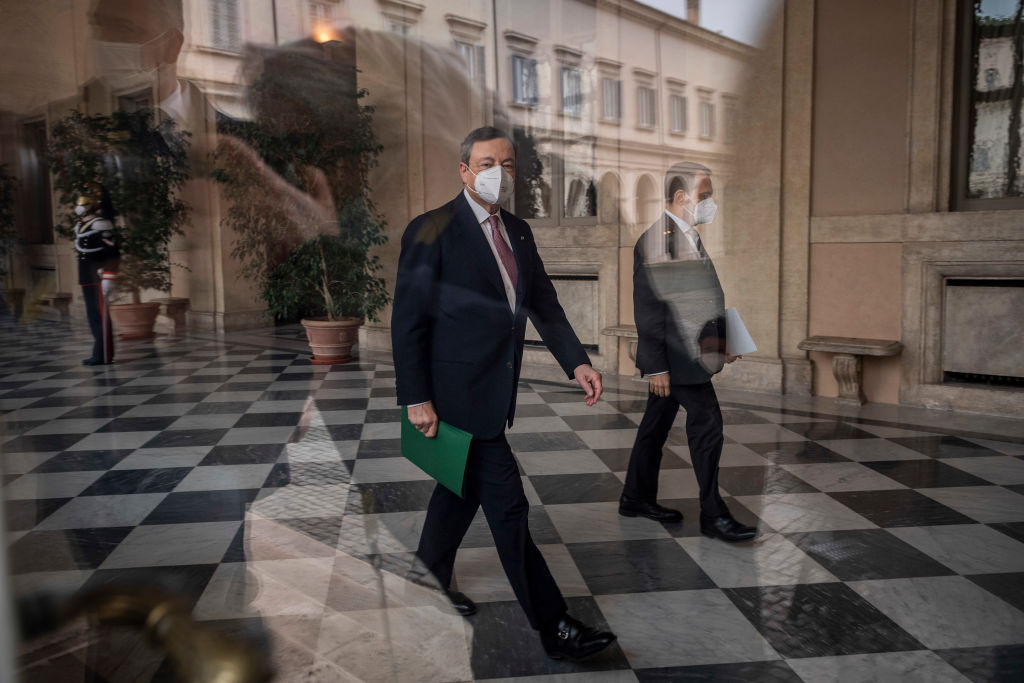
When the world shut down last year due to Covid-19, collective attention turned to the experts. Despite 10 years of fears from political scientists and newspaper columnists about the ‘rise’ or ‘dominance’ of populism at the expense of technocrats and the ‘establishment’, competent officials in many countries swiftly steered ships of state through unprecedentedly choppy waters during the pandemic. The European Union and its globalist-oriented leaders were touted as examples of how technocrats and globalists, not ‘outsider’ populists and nationalists, could save a world in flames.
This initial success begot arrogance. The EU leadership, which boasted about its early pandemic success, has eaten humble pie these past two months because of the bloc’s disastrous vaccine rollout. Only 15.6% of people in the EU have received a jab so far.
The incompetent EU rollout, however, shouldn’t boost the fortunes of anti-establishment politicians. Populist leaders, including former US president Donald Trump, Brazilian President Jair Bolsonaro, Mexican President Andrés Manuel López Obrador and Belarussian President Alexander Lukashenko—all self-described populists—disastrously managed the pandemic by downplaying the virus’s severity, seeking to prematurely reopen economies despite rising infection rates, or questioning reputable medical opinions. Although Trump left the White House in January, Brazil, Mexico and Belarus still maintain high levels of infections and low levels of vaccinations, principally because of their leadership.
The incompetent EU rollout also shouldn’t lessen the power of technocrats and a globalist-minded establishment to rectify crises. Italian Prime Minister Mario Draghi, for example, has quietly and effectively bolstered the case for a technocratic government led by an experienced, well-connected statesman.
Draghi is no stranger to resurrecting entities from dire straits. When Europe confronted the financial crisis in the northern summer of 2012, Draghi as president of the European Central Bank (ECB) vowed to do ‘whatever it takes’ to preserve the euro. Through ‘sharp political instincts’, optimism and a rebuke of traditional ECB conservatism, Draghi achieved what he promised. For his triumph, he earned the sobriquet ‘Super Mario’.
This past February, Italian President Sergio Mattarella summoned ‘Super Mario’ to lead Italy after Giuseppe Conte resigned the premiership. Confronting not only an international health and economic crisis, but also spiralling public debt and slow growth, Draghi faced an uphill battle from the beginning of his tenure.
Attribute it to the ‘political honeymoon’ phase, but the Italian premier has already found success.
He has eased Italy’s fractious political system. Anti-establishment Italian political parties like Matteo Salvini’s League and Luigi Di Maio’s Five Star Movement, which have dominated national politics, joined traditional establishment parties like the Democratic Party and Forza Italia to form a government under Italy’s most established and globalist premier. Instead of beating these populist parties, Draghi has joined forces with them—and neutered their corrosive impact on Italian politics. He has also won over many of their followers; 61% of the Italian public approves of Draghi’s performance so far.
On public policy, Draghi has pushed for greater Italian support of ‘an increasingly integrated European Union’ with scant blowback from his Euro-sceptic coalition partners. He upended Italy’s slow vaccination campaign by ‘focusing on logistics and recruiting the military to help’ while dismissing two top officials who obstructed a smooth process. Despite putting Italy on a more globalist footing, Draghi criticised the bloc for not being tougher against pharmaceutical companies that evaded delivery commitments. He then triggered an EU mechanism that blocked the export of roughly 250,000 vaccines to Australia. No one in the EU contested his decision.
In doing so, Draghi achieved for Italy what other populist leaders dream of. One can only imagine the blowback an anti-establishment figure would have faced from the EU had they chosen to block the export. By being so firmly entrenched in establishment circles, Draghi was arguably the only Italian who could achieve the nationalist goal of protecting his citizens’ health at the expense of another country. Just as only Richard Nixon could go to China, only Draghi could keep vaccines in Europe.
Draghi’s establishment credentials—so often ridiculed by ‘outsider’ politicians in Italy, the United States and elsewhere—could make him a successful prime minister on three counts. First, people respect his deep intellect and experience. Second, his Rolodex bursts at the seams, allowing him to broker deals and leverage connections across the globe. Third, much like Theodore Roosevelt, Draghi ‘speaks softly and carries a big stick’. He has given few speeches or press conferences, preferring instead to keep his nose to the grindstone. In an age of ‘brand politics’, where politicians focus on their image at the expense of public policy, Draghi does something unusual: he governs.
No matter his success, Draghi will not eradicate populism. But if his government’s standard of technocratic expertise can mitigate future waves of Covid-19 and steer Italy away from a deeper recession, he will have undercut another populist revolt in Italy. In this, Draghi offers fellow Western leaders a roadmap for success in thwarting anti-establishment revivals similar to the ones that emerged in the wake of the 2008 financial crisis.
Populism, and the nationalist mindset it typically propagates, will not die. But it’s high time the ‘establishment’ stopped ridiculing political ‘outsiders’ and started focusing on what its members can do to improve the lives of their compatriots. The best case for the ‘establishment’ is not the derision of its opponents, but proof of its benefits to the average voter. If experienced leaders can achieve that, they can remind voters that the ‘establishment’ is not only needed to save a nation in crisis—it can lead well in times of stability too.

